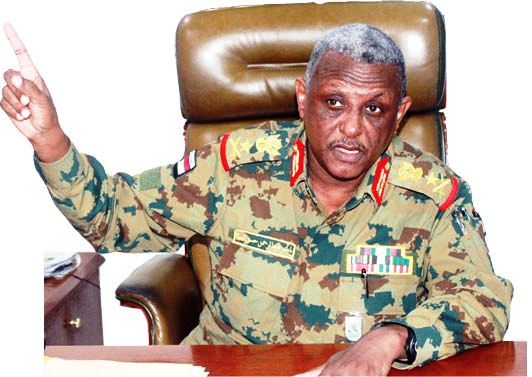Sudan’s coup leaders hold secret consultations with political leaders
May 3, 2022 (KHARTOUM) -Yasir al-Atta, a member of the Sovereign Council, revealed that the coup leaders held a series of meetings with the political forces to create a suitable atmosphere and to ensure the needed basic agreement before starting the process of national dialogue.
In a television interview with Sudania 24 broadcast on Tuesday, but recorded on April 30, Atta who is tasked with the political file in the military-led Sovereign Council stressed that all the military leaders believe that only dialogue can lead to the end of the political stalemate.
“Chairman al-Burhan is closely following this matter and is primarily interested in getting results that would allow us to end the crisis,” he stressed.
Atta said he met with all the political forces except the Sudanese Communist Party which he would meet in the coming days. Also, He said that Gen al-Burah, his deputy Hemetti and Gen Sham al-Din Kabbashi have met with some political leaders.
The purpose of these meetings is to “gather the positions of all these political forces and to categorize them into issues where they strongly agree, issues where they somewhat agree and issues where they strongly disagree,” he said
“After what we would work to bring the different viewpoints closer” he further said stressing they do not hold direct dialogue with the parties but only narrow the gaps between them.
Recently some leaders of the Forces for Freedom and Changes (FFC) said their disagreement is with the military leaders who overthrew the civilian government, halted the transition process and killed protesters and committed human rights violations.
However, Atta stressed that their demarche is based on the principle that “we military personnel are interested in power” and believe that they should hand it over to a civilian government after reaching the needed consensus to carry out the tasks of the transitional period.
He said reaching the needed consensus does not mean they want to form a new political coalition back a government that would be tasked with the remaining of the transition.
“This is not our will. Rather, we want all the forces of the revolution to support the government. We want these forces to reach a minimum consensus that would enable a two-stage dialogue to be conducted”.
The first (dialogue) is on the mechanism for selecting a prime minister and the ministers working with him without being supported by a specific political majority. “.
“Then a deep strategic dialogue will be conducted on the concept of a civil and democratic state, in which all political parties participate (…),” he added.
The coup leaders have been accused of seeking to forge a new political coalition involving the Islamist groups and political forces that were allied to the former regime of Gen al-Bashir.
After the coup, al-Burban reinstated all the cadre of the former regime and sacked those appointed by the FFC groups.
The move is perceived as an additional political hindrance to the transition toward democracy.
Speaking about his meetings with FFC leaders who were in prison before their release, he said they stressed the role of the tripartite mechanism which should facilitate the process.
The military component has “no objection to this, provided that there is an independent Sudanese mechanism to manage the dialogue because the details of political complications are understood only by people who experience them,” he said.
Also, he said the member of the dialogue managing panel would be chosen by consensus.
The member of the Sovereign Council said the FFC groups are not interested to participate in power but want the dialogue process to achieve the goals of the revolution, including the formation of a single army with a specific matrix.
They, also, call for an agreement on a set of rules for the formation of the government independent government of technocrats, he added.
(ST)

